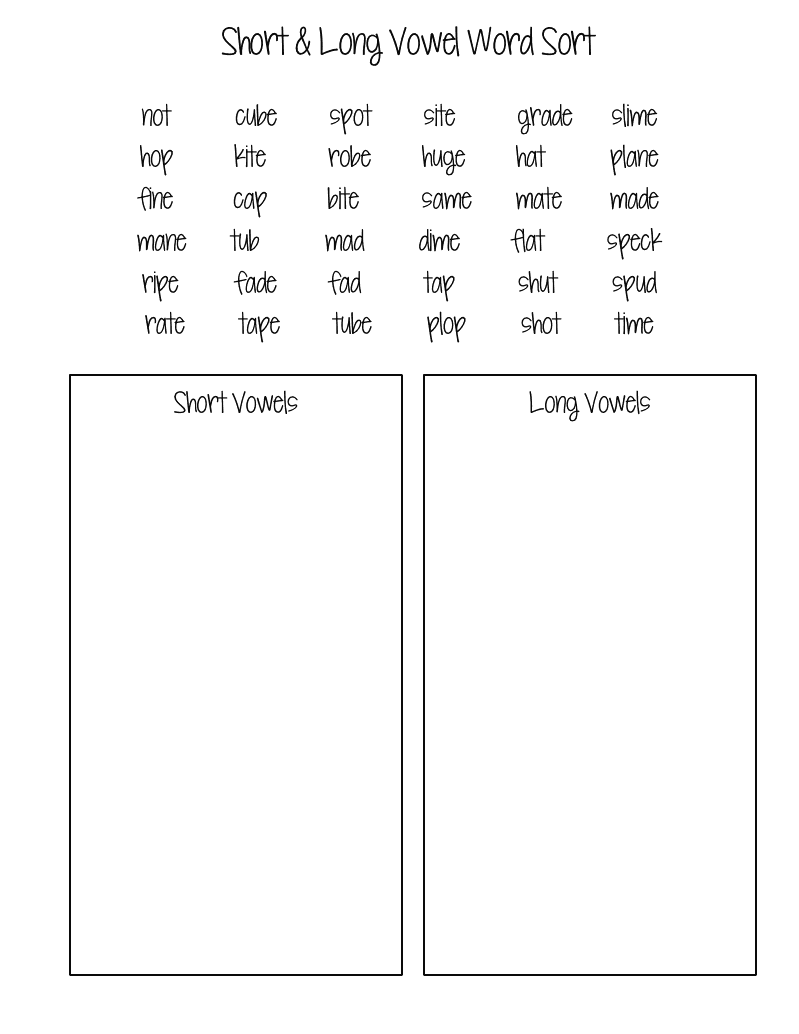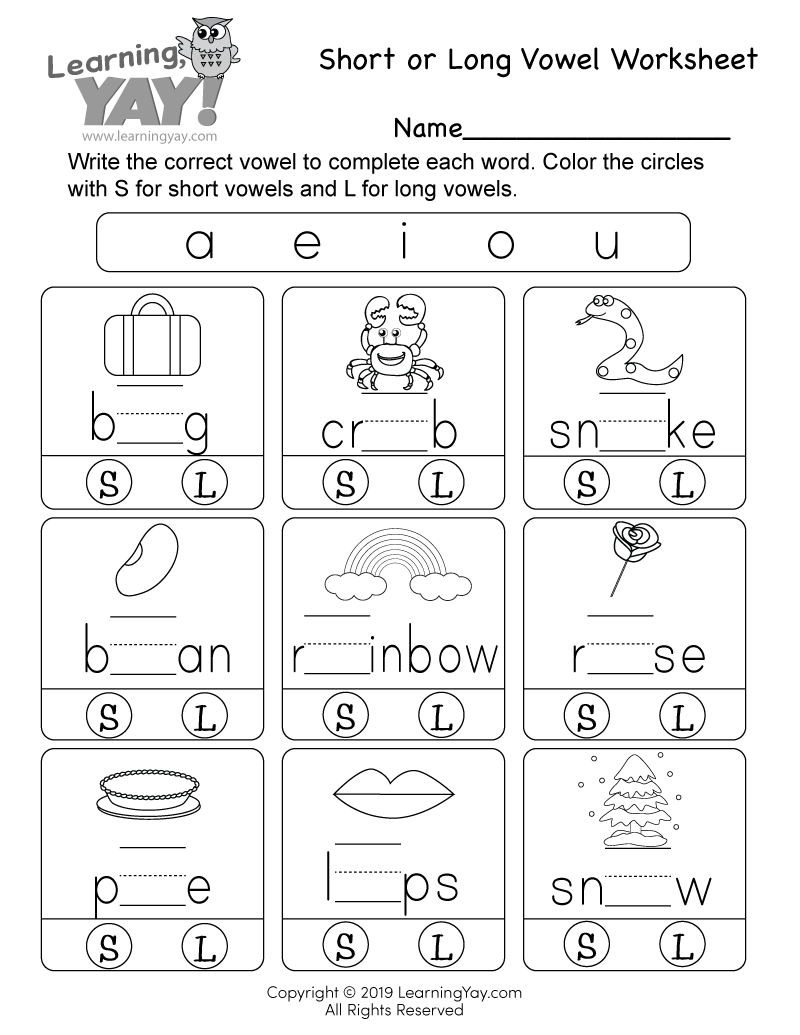

To start a discussion of 'long' and 'short' vowels is to enter very muddy waters. (An old rhyme for children says “when 2 vowels go walking, the first does the talking.”) So ’plain’ sounds exactly like ‘plane,' ‘meat’ and ‘meet’ like ‘mete,’ etc.For a note on how AWE organizes its group of articles on vowels, basically by aspects of sound and of writing, see category:vowels. Often the first letter of the vowel combinations, especially ‘ai’, ‘ay’, ‘ea’ (sometimes- see Digraphs, below), ‘ee’, & ‘oa,’ will be long & the second will be silent. Igh and -ight are usually long I (and silent GH): bright, fight, high, light, might, night, right, sigh, sight, tight. (Some English speakers use a short ‘a’ in the 2nd syllable, while others use a long ‘a,’ but both ‘o’s are long for everyone.)

Examples: I, we, he, she, go, try, potato and tomato. Other Long Vowels: A vowel at the end of a syllable is almost always long.

Those words are common, but many more -ve, -one words, & -ice are long: cove, dive, dove (the past tense), drive, drove, five, gave, grove, hive, knives, live (the adjective), pave, revive, save, stove, strive, survive, thrive, alone, bone, cone, phone, stone, tone, & advice, dice, ice, nice, price, rice, etc. A few others: are, come, done, gone, none, and one, as well as office. There are just a few exceptions, most involving a 've' or an 'ne': above, dove (the bird), give, have, live (the verb), love, move, prove, solve, etc. (Examples: ate, plane, Pete, bite, nine, rope, note, cube, flute.) Silent ‘E’ Rule: When a vowel and single consonant are followed by an ‘e’ (in the same syllable), the ‘e’ is almost always silent, but it causes the preceding vowel to be long. Long U (ū) as in mute or /uː/ as in blue.Long O (ō) as in oats, mote or moat, and.Long E (ē) as in eat or meat (or meet or mete- all pronounced the same),.However, they are completely different sounds- not a longer version of the same sound. We call them ‘long’ because we hold them slightly longer than the short sounds.

The alphabet sounds (when the vowel “says its name”) are called “long vowels.”


 0 kommentar(er)
0 kommentar(er)
